
McKinley Morganfield, known professionally as Muddy Waters, was an American blues singer-songwriter and musician who was an important figure in the post-war blues scene, and is often cited as the "father of modern Chicago blues." His style of playing has been described as "raining down Delta beatitude."

Jimmy Rogers was an American Chicago blues singer, guitarist and harmonica player, best known for his work as a member of Muddy Waters's band in the early 1950s. He also had a solo career and recorded several popular blues songs, including "That's All Right", "Chicago Bound", "Walking by Myself", and "Rock This House". He withdrew from the music industry at the end of the 1950s, but returned to recording and touring in the 1970s.

Marion Walter Jacobs, known as Little Walter, was an American blues musician, singer, and songwriter, whose revolutionary approach to the harmonica had a strong impact on succeeding generations, earning him comparisons to such seminal artists as Django Reinhardt, Charlie Parker and Jimi Hendrix. His virtuosity and musical innovations fundamentally altered many listeners' expectations of what was possible on blues harmonica. He was inducted into The Rock and Roll Hall of Fame in 2008, the first and, to date, only artist to be inducted specifically as a harmonica player.

James Edward "Snooky" Pryor was an American Chicago blues harmonica player. He claimed to have pioneered the now-common method of playing amplified harmonica by cupping a small microphone in his hands along with the harmonica, although on his earliest records, in the late 1940s, he did not use this method.

James Henry Cotton was an American blues harmonica player, singer and songwriter, who performed and recorded with many of the great blues artists of his time and with his own band. He played drums early in his career but is famous for his harmonica playing.
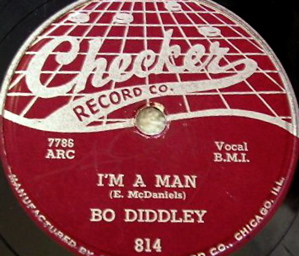
"I'm a Man" is a rhythm and blues song written and recorded by Bo Diddley in 1955. Inspired by an earlier blues song, it was one of his first hits. "I'm a Man" has been recorded by a variety of artists, including the Yardbirds, who adapted it in an upbeat rock style.
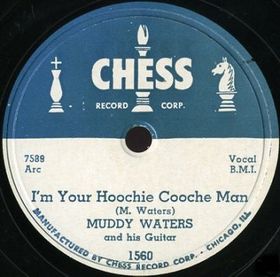
"Hoochie Coochie Man" is a blues standard written by Willie Dixon and first recorded by Muddy Waters in 1954. The song makes reference to hoodoo folk magic elements and makes novel use of a stop-time musical arrangement. It became one of Waters' most popular and identifiable songs and helped secure Dixon's role as Chess Records' chief songwriter.

William "Billy Boy" Arnold is an American blues harmonica player, singer and songwriter. Arnold is self-taught harmonica player and has worked with blues legends such as Bo Diddley, Johnny Shines, Otis Rush. Earl Hooker, Howlin' Wolf, Muddy Waters and others.

The Best of Little Walter is the first LP record by American blues performer Little Walter. First released in 1958, the compilation album contains ten Little Walter songs that appeared in the Top 10 of the Billboard R&B chart from 1952 to 1955, plus two B-sides. The album was first released by Checker Records as LP-1428, which was the first LP record released by Checker, and then released on Chess Records with the same catalog number.

Frederick Below, Jr. was an American blues drummer, best known for his work with Little Walter and Chess Records in the 1950s. According to Tony Russell, Below was a creator of much of the rhythmic structure of Chicago blues, especially its backbeat. He was the drummer on Chuck Berry's song "Johnny B. Goode".

"My Babe" is a Chicago blues song and a blues standard written by Willie Dixon for Little Walter. Released in 1955 on Checker Records, a subsidiary of Chess Records, the song was the only Dixon composition ever to become a number one R&B single and it was one of the biggest hits of either of their careers.
Floyd Jones was an American blues singer, guitarist and songwriter. He was one of the first of the new generation of electric blues artists to record in Chicago after World War II, and a number of his recordings are regarded as classics of the Chicago blues idiom.
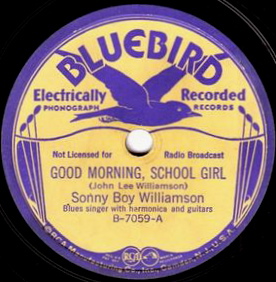
"Good Morning, School Girl" is a blues standard which has been identified as an influential part of the blues canon. Pre-war Chicago blues vocalist and harmonica pioneer John Lee "Sonny Boy" Williamson first recorded it in 1937. Subsequently, a variety of artists have recorded versions of the song, usually calling it "Good Morning Little Schoolgirl".
"Baby Face" Leroy Foster was an American blues singer, drummer and guitarist, active in Chicago from the mid-1940s until the late 1950s. He was a significant figure in the development of the postwar electric Chicago blues sound, notably as a member of the Muddy Waters band during its formative years.
Moody Jones was an American blues guitarist, bass player, and singer who contributed to the development of the postwar Chicago blues sound in the late 1940s.

The Best of Muddy Waters is a greatest hits album by Muddy Waters released by Chess Records in April 1958. The twelve songs were originally issued as singles between 1948 and 1954 and most appeared in Billboard magazine's top 10 Rhythm & Blues Records charts.
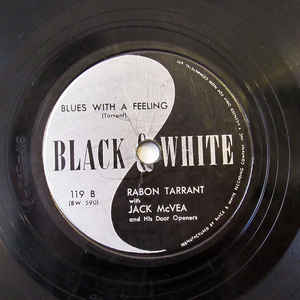
"Blues with a Feeling" is a blues song written and first recorded by Rabon Tarrant with Jack McVea and His All Stars in 1947, as the B-side of "Slowly Goin' Crazy Blues". Although the original release was commercially unsuccessful, the song later became an important hit for Little Walter, with whom it is usually identified.

His Best is a greatest hits album by Chicago blues harmonica player Little Walter, released on June 17, 1997 by MCA and Chess Records as a part of The Chess 50th Anniversary Collection. The album is seen as the CD successor to the 1958 The Best of Little Walter and features ten of the songs from that album.
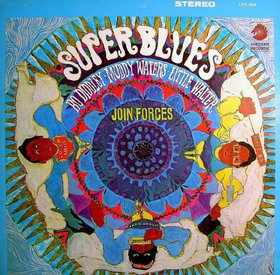
Super Blues is a 1967 studio album by a blues supergroup consisting of Bo Diddley, Muddy Waters, and Little Walter. The album was released in both mono and stereo formats by Checker Records in June 1967. A follow-up album The Super Super Blues Band was released later that year and featured Howlin' Wolf replacing Little Walter.
"Hate to See You Go" is a blues song written and recorded by Chicago blues artist Little Walter. In 1955, Checker Records released it as one of three singles by Walter that year. The song, a one chord modal blues, is a reworking of "You Don't Love Me", written by Bo Diddley and recorded one month prior.
















